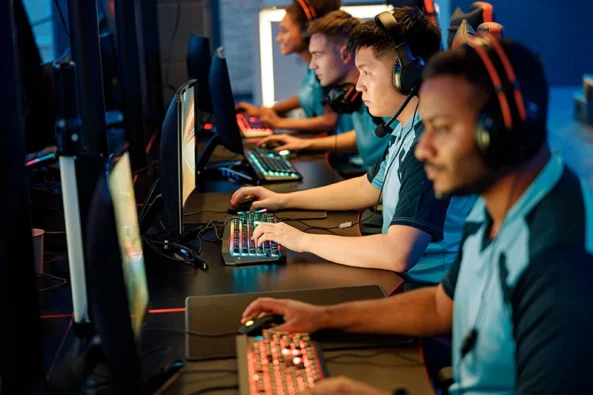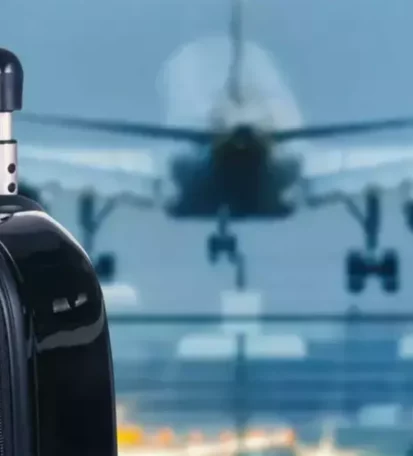Tips
How to Stay in the Game: Playing E-Sports While Traveling in 2025

Imagine dominating Valorant matches from a beachside cafe in Bali or catching a Dota 2 tournament stream while wandering Seoul’s streets. For gamers who love to travel, blending esports with globetrotting creates unforgettable adventures.
Esports is more than just playing—it’s about staying connected to a global community of competitors and fans. Platforms like GGBet make it easy to follow professional sports/games and engage live odds, whether you’re watching football matches from a hostel in Tokyo or CS2 showdowns from a coworking space in Berlin.
Choosing the Right Gear for E-Sports on the Go
To play esports while traveling, your gear needs to be compact, powerful, and road-ready. Here’s what to pack:
- Lightweight Gaming Laptops: A slim model like the ASUS ROG Zephyrus G14 delivers high performance without the bulk. Look for an NVIDIA RTX 4060 GPU and 16GB RAM to run games like Valorant or Apex Legends smoothly.
- Mobile Devices: For mobile esports, phones like the iPhone 16 Pro or Samsung Galaxy S25 handle PUBG Mobile and League of Legends: Wild Rift effortlessly. Pair with a Razer Kishi controller for precision.
- Accessories: A compact headset like HyperX Cloud Earbuds and a portable charger like the Anker PowerCore 10000 keep you gaming during long layovers.
- Travel Tip: Pack your gear in a padded backpack with a laptop compartment. Check airline carry-on rules to avoid hassles.
Test your setup at home to ensure smooth gameplay. For competitive esports, prioritize devices with high refresh rate screens (120Hz or above) to minimize lag.
Finding Reliable Internet for Competitive Play
Low latency is critical for e-sports, but securing fast Wi-Fi while traveling can be tricky. Here’s how to stay connected:
- Hotel and Hostel Wi-Fi: Book accommodations with high-speed internet—check reviews on Booking.com for mentions of “gaming” or “Wi-Fi speed.” Boutique hotels in cities like Singapore often offer gigabit connections.
- Coworking Spaces: Spots like WeWork or local cafes in gaming hubs like Seoul or Los Angeles provide stable, fast internet. Apps like Workfrom help you find gaming-friendly locations.
- Portable Hotspots: Rent a travel hotspot like GlocalMe for global 4G/5G access. In Europe, expect to pay $5–$10/day for 1GB daily plans.
- Travel SIMs: Grab local SIMs with high data caps, like AIS in Thailand or Vodafone in the UK, for mobile gaming. Confirm coverage to avoid roaming fees.
Use a ping tester like Speedtest.net to check connection quality before matches. To stay competitive in games like CS2, aim for under 50ms ping.
Joining E-Sports Communities Abroad
Traveling doesn’t mean pausing your e-sports passion—local gaming communities can elevate your trip. Here’s how to connect:
- Gaming Cafes: Cities like Tokyo (eGG Esports Hub) and Seoul (PC Bangs) offer vibrant gaming cafes with high-end PCs for $1–$3/hour. Search “PC Bang near me” or check TripAdvisor for recommendations.
- LAN Events: Find casual tournaments or meetups on Eventbrite or Meetup. Berlin, for example, hosts regular Overwatch LAN nights at gaming bars.
- Online Communities: Join Discord servers like “Esports Travel Hub” or game-specific groups on Reddit to meet local players. Share your travel plans to find teammates or events.
- Cultural Tip: To blend in, respect local customs in Asian gaming cafes, like removing shoes in some Japanese PC Bangs.
Follow regional e-sports accounts on X for pop-up event updates. For instance, @ESLAsia often shares details about local tournaments in Southeast Asia.
Staying Engaged with E-Sports Events
Traveling opens doors to experience e-sports events live or follow them remotely. Iconic tournaments like The International for Dota 2 or League of Legends Worlds draw global crowds. Here’s how to stay involved:
- Attend Live Events: Snag tickets early through platforms like Ticketmaster or event-specific sites. Budget travelers can book affordable hostels near venues via Hostelworld.
- Watch Online: Stream matches on Twitch or YouTube from anywhere. A VPN like NordVPN can bypass geo-restrictions in countries with limited access.
- Follow the Pros: Track professional matches to stay in the loop, whether you’re cheering for CS2 Majors or Valorant Champions from a cafe or hotel room.
If you are attending events in countries like Denmark or China, plan ahead for visas. Early booking saves money and ensures you don’t miss out.
FAQ: E-Sports While Traveling
Can you play e-sports on a mobile device?
Yes, games like PUBG Mobile and Wild Rift are mobile-friendly. Use a high-end phone and a controller for competitive play.
How do I find gaming cafes while traveling?
Search Google Maps or TripAdvisor for “gaming cafe” or “PC Bang” in your destination. Seoul and Tokyo are top spots.
What are the best portable devices for e-sports?
Slim laptops like ASUS ROG Zephyrus or phones with high refresh rates like Samsung Galaxy S25 are ideal for travel.
How do I get reliable Wi-Fi for gaming abroad?
Use coworking spaces, rent a portable hotspot, or buy a local SIM with high data. Test ping with Speedtest.net before matches.
Conclusion
Playing e-sports while traveling blends the thrill of gaming with the joy of exploration. Portable gear like lightweight laptops and mobile controllers lets you compete from anywhere, while fast Wi-Fi from coworking spaces or hotspots keeps you in the game.
Joining local gaming communities, like Tokyo’s PC Bangs or Berlin’s LAN events, adds a cultural twist to your travels. Following pro tournaments, whether live or online, ensures you stay connected to the e-sports scene no matter where you roam.




